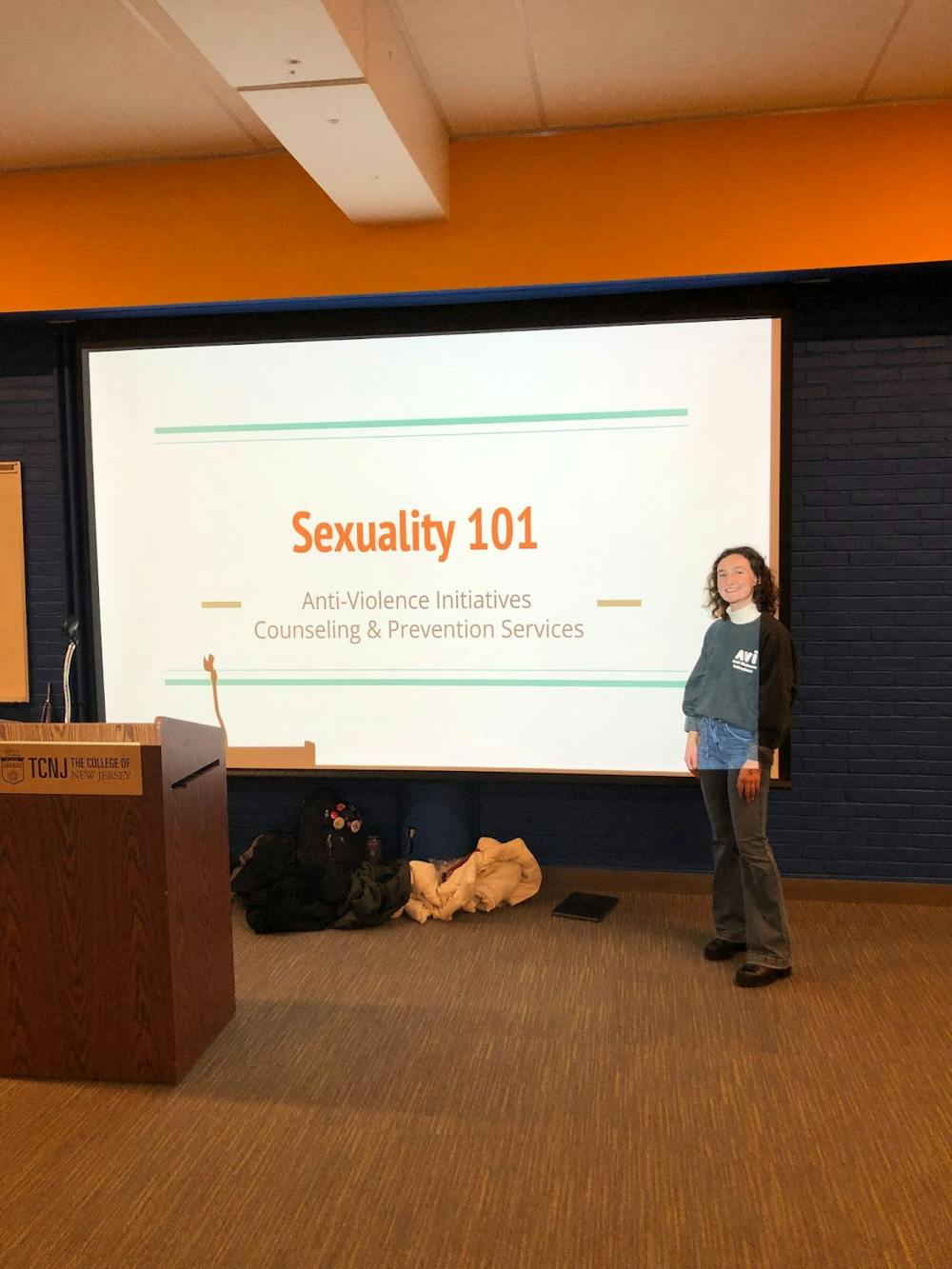By Mario De Leon
Correspondent
Anti-Violence Initiatives (AVI) hosted a sexuality 101 workshop on April 7 in honor of sexual assault awareness month to provide the College community a safe space to discuss the components and nuances of sex, consent and expression of sexuality.
Senior public health major Ellie McCreesh is a primary prevention intern for AVI and was the event organizer of this workshop. This was AVI’s first in-person workshop since the pandemic started.
McCreesh commenced the program by laying out some ground rules including inclusiveness and understanding of other people’s backgrounds and experiences, the use of clear and specific terminology and a “one mic rule” to avoid disrespectful behavior.
Members of AVI assured students throughout the workshop that this event is a safe environment for all participants and that prizes would be given out during the event for anyone who actively participated.
“We are hoping to help students facilitate conservation around sexuality and consent, empower students to express their sexuality to better their relationship with others and themselves,” said McCreesh.
Attendees were told to cluster together into different groups in order to facilitate a few group activities throughout the program.
The first group activity involved listing words that are associated with sexually active women and men. Each group listed words that are associated with sex. After coming up with a long list of terms for sexually active women, men and sex in general, McCreesh asked the attendees, “How can these terms be viewed differently by different sexualities?”
One student in the audience said such terms can be perceived as heteronormative and exclude indivudals with different sexual orientations or sexual identities.
McCreesh also asked how religion can shape experiences.
Another student in attendance said that religion can result in shame in different cultures based on these experiences, as there exists an intersectionality between religion, race and sexuality, and experience can vary between the individual and collective level.
A heuristic model for sex and the components of sex were introduced by AVI. This model is known as the ‘Circles of Sexuality’ and comprises five main components.
The first component is sensuality, using our senses to experience pleasure or how we feel pleasure. Second is intimacy, the exchange of emotional closeness between a partner. Third is identity, how we choose to express ourselves to others. Fourth is sexual health and reproduction, it encompasses the components of our bodies and how they function. Fifth is power and sexualization, the role of power in sexuality and how we learn about sexuality.
The last component can vary from simple flirting, to seduction, to sexual assault.
After the groups were introduced to the concept of the circles of sexuality, each group was given a different set of six cards, each set containing different words or phrases, and they needed to determine which card belonged to which circle of sexuality. Once every group regrouped for discussion, there was a realization that some words could fit into more than one circle of sexuality.
“I am hoping students apply the circle of sexuality in their own lives and have a more comprehensive understanding of sexuality,” said McCreesh.







